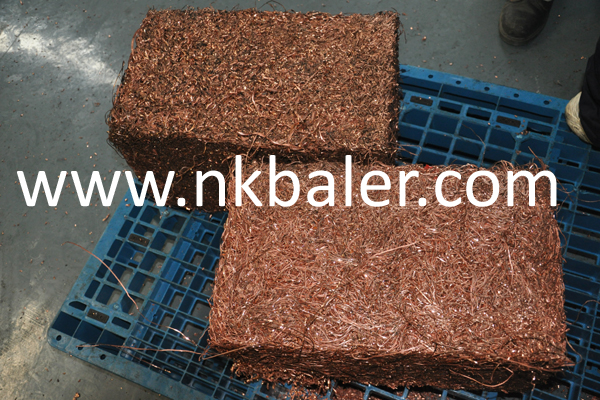The industry demand analysis for metal recycling balers involves examining various sectors that generate metal waste and require efficient baling solutions for recycling purposes. Here are some key points to consider:
Automotive Industry:Scrap Metal from End-of-Life Vehicles (ELVs): As vehicles reach their end-of-life stage, they produce a significant amount of scrap metal that needs to be recycled. Metal recycling balers play a crucial role in consolidating this material into compact bales, reducing transportation costs and facilitating the recycling process.Manufacturing Scrap: Metal shavings, trimmings, and other manufacturing by-products can be efficiently handled and prepared for recycling through baling.Construction and Demolition Industry:Scrap Metal from Construction Sites: Scrap metals such as steel, iron, and copper are generated during construction and demolition activities. Balers are essential for consolidating these materials, making them easier to transport and recycle.Rebar and Wire Scrap: Reinforcing bars and wires from dismantled concrete structures can be effectively baled for recycling.
Electronic Waste (E-Waste) Industry:Scrap Metal from E-Waste: Old electronic devices contain valuable metals like copper, aluminum, and gold. Balers can help in processing large quantities of e-waste by condensing it into manageable bales for further separation and recycling processes.Manufacturing Industry:Industrial Scrap Metal: Manufacturing processes often produce surplus metal or metal offcuts that can be baled for easy storage and recycling.Aerospace and Defense: These industries generate high-value metal scraps that require careful handling and baling to ensure their recyclability.Household Waste Management:Domestic Scrap Metal Collection: Municipalities often collect small amounts of household scrap metal, which can be more efficiently handled and transported if baled.Energy Sector:Scrap from Utility Work: Old power lines, transformers, and other utility infrastructure contain copper and aluminum, which are valuable when recycled. Baling these materials prior to recycling reduces volume and facilitates handling.Thrift Industry:Metal Scrap from Used Goods: Used appliances, furniture, and other metal items often end up in thrift stores or recycling centers. Baling these items before sending them for recycling can simplify logistics.Environmental Regulations and Incentives:Government Policies: Many governments offer incentives for recycling, which can boost demand for metal recycling balers.Corporate Sustainability Goals: Companies aiming to reduce their environmental impact may invest in baling equipment to optimize their recycling efforts.Technological Advances in Recycling:Innovation in Recycling Technology: As recycling technology improves, the need for efficient preprocessing steps like baling becomes more pronounced. Advanced balers can enhance the effectiveness of new recycling methods.Market and Economic Conditions:Commodity Prices: Fluctuations in metal prices can affect the profitability of recycling, indirectly influencing the demand for baling equipment.Globalization of Recycling Markets: As recycling markets become more global, there is increased competition and demand for efficient baling solutions to remain competitive.
The demand for metal recycling balers is driven by various industrial sectors generating metal waste, coupled with environmental regulations, corporate sustainability initiatives, and technological advancements in recycling. The market for metal recycling balers is likely to grow as the importance of recycling and resource conservation continues to rise globally.
Post time: Jul-03-2024